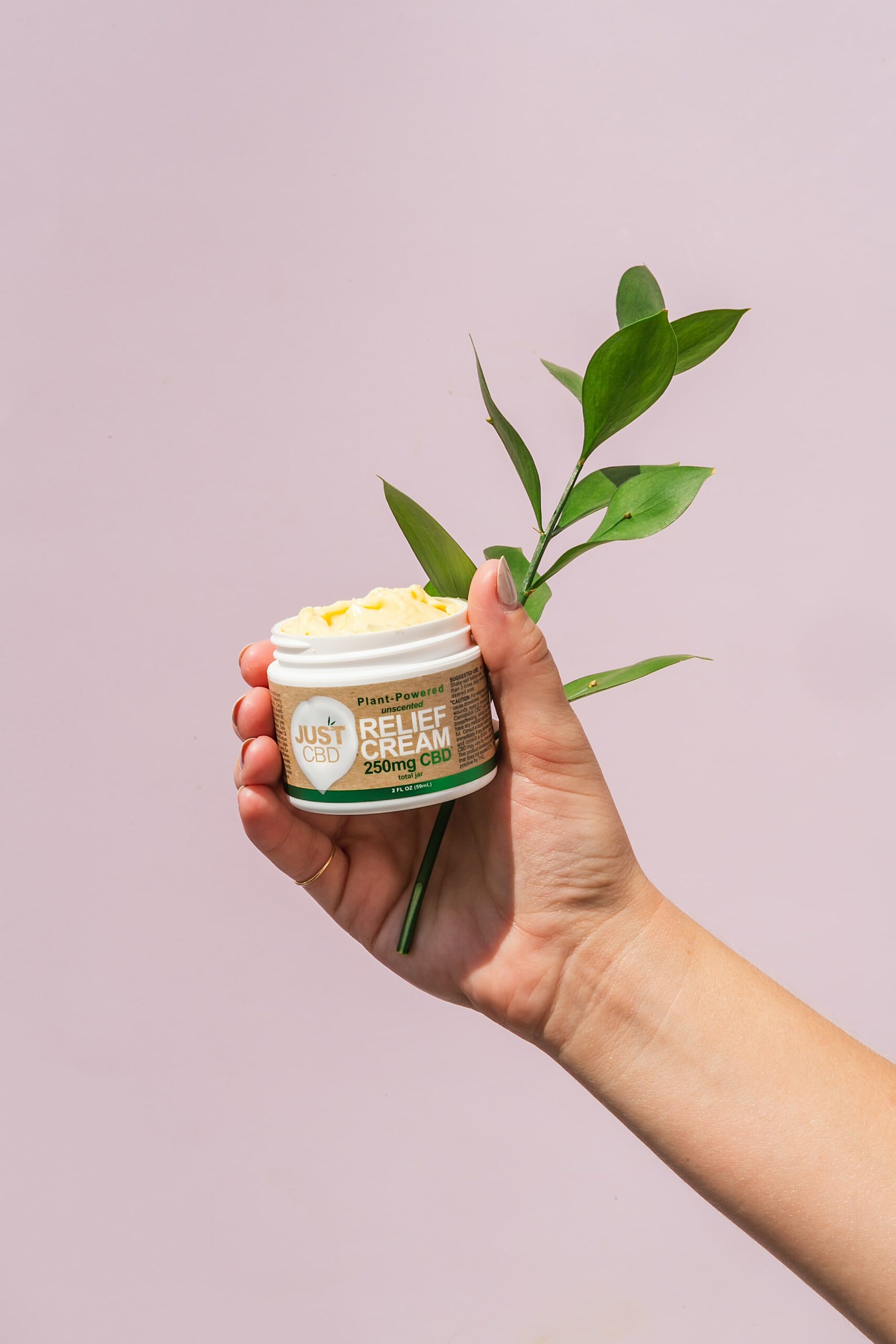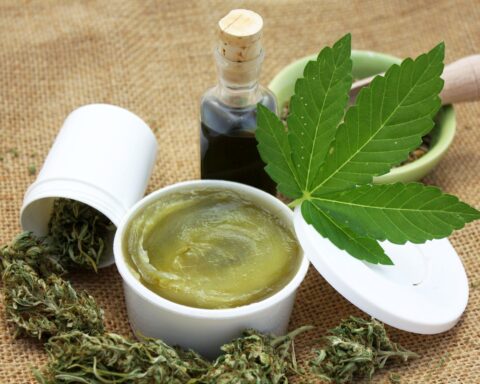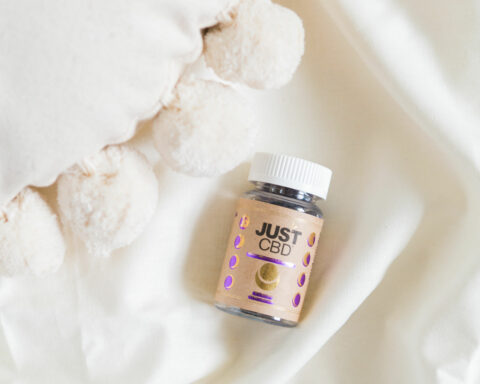Cannabis is a wonder plant. It has many benefits that you are missing out on if you have not yet started using it. CBD topicals are administered on the skin to get the product’s benefits.
CBD is one of the hundreds of compounds found in the hemp plant. It is a non-psychoactive compound of the hemp plant. Another compound found in the hemp plant is THC. The difference between THC and CBD is that the former has psychoactive effects while the latter has anecdotal effects. THC is mostly known as medical marijuana. Its high effects act as a stimulant that one requires while performing their duties or when one requires energy to perform their daily chores. Lotions, balms, and creams that have been induced with CBD oil are good when one wants to relieve pain. They are referred to as CBD topicals.
THC and Endocannabinoid System
The endocannabinoid system (ECS) interrelates with THC to give varying effects in the body as it determines the manifestation of psychoactive effects. Battista & Di Tommaso (2012) stated that ECS plays an important role in maintaining homeostasis. The ability to tolerate THC in individuals varies. Some people may be sensitive to small amounts of THC, while others require a large amount to feel the effects. Therefore, if you are sensitive to a few amounts of THC, you will feel the high effect of the topicals, unlike a person with a higher tolerance. Bloomfield& Ashok (2016) showed that THC activates the brain’s reward system by releasing dopamine. According to Sayin (2019), dopamine is the neurotransmitter that plays an important role in mood and pleasure.
The Amount of THC
Topicals with a high number of dosages of THC give room for a lot of THC compounds to be absorbed in the body. The amount of THC entering the bloodstream increases, bringing about the psychoactive effects.
Is It Possible for THC to Be Absorbed into Your Skin?
According to research, the endocannabinoid system makes it possible for one to benefit from CBD. The cannabinoids function by entering the muscles and joints, supplementing the ECS. After going through this natural system, CBD controls various functions, such as regulating sleep and relieving pain. People who suffer from chronic pain go for topical CBD products to help them reduce pain and inflammation. This is backed by Schilling et al. (2021). THC is absorbed through the skin, but it doesn’t guarantee that you will get high from THC topicals.
Exposure of Topicals
When your body interacts with THC topicals for a long period, it gets used to it in the bloodstream. Since creams and lotions dry up faster, there is no effect on the body. However, when it comes to THC-induced bombs and soaps, they permit the skin to be in contact with THC for a longer period, therefore, maximizing the interaction of THC with the bloodstream through the skin. If you are sensitive to THC, you are more likely to experience that high feeling.
How CBD Topicals Work
Within ten minutes of application, CBD topicals should offer relief effects. The relief offered depicts that it takes a very short time to ascertain the helpfulness of your product. Being consistent in applying it gives you better results. Expected side effects include excess fatigue, diarrhea, and mild nausea.
How Safe is it to use CBD Topicals?
Like any other soothing cream, CBD topicals work the same. One uses them by simply massaging the product infused with CBD on the affected area, and within a short period, one is likely to experience the effects. Since CBD topicals are available in various formats, each client is at liberty to choose the format they prefer, depending on their medical provider’s prescribes to them.
What is Contained in the CBD Topical?
Cannabis topicals are available in three major types. CBD isolate, which has no cannabinoids other than cannabidiol, broad-spectrum topicals which have a mixture of terpenes and cannabinoids with zero THC, and full-spectrum topicals which have a variety of terpenes and cannabinoids. Note that several topicals feature here. Most topicals are in the form of herbs and vitamins that add therapeutical benefits. It is wise to go through the topical’s label you wish to purchase to know the exact ingredients of the product. It is an added advantage if you also check the lab reports of the product to ascertain the particular profile of the cannabinoid and terpene content.
Will Applying THC Lotion Make You High?
It is wrong to conclude that THC will make you high. We have no exact findings that lotions produce psychoactive effects by applying them normally. Therefore, people can find relief from applying the lotion without getting high. Many people have used CBD lotion to deal with issues such as sores that come up due to working out and arthritis. They have all acquired positive change without complaining of getting high or any other unpleasant effect. In other words, one can utilize cannabis topicals and comfortably carry out their work.
Do CBD Topicals Show Up in a Drug Test?
The chances are high that CBD topicals will never make you fail a drug test since CBD has no psychoactive effects. It is nearly impossible for a person to fail a drug test even after using a THC topical. Cannabinoids bind with fatty molecules, and in most cases, they remain in the area in which you have applied them. The most recommended way to certify that topicals are spread through the body is by using them as a THC patch or transdermal.
Conclusion
There are several ways of exploiting the medical attributes of cannabis. Topicals are applied to the affected area to relieve pain or reduce inflammation. CBD topicals are safe to use. It is very rare for you to get high after using CBD topicals because CBD does not have psychoactive effects. Make a date with your doctor, who will advise you accordingly before using any CBD medications. Although topicals made from THC have a psychoactive effect, their application can rarely make you feel high. However, note that the high effects depend on one’s body.
References
Battista, N., Di Tommaso, M., Bari, M., & Maccarrone, M. (2012). The endocannabinoid system: an overview. Frontiers in behavioral neuroscience, 6, 9.
Bloomfield, M. A., Ashok, A. H., Volkow, N. D., & Howes, O. D. (2016). The effects of Δ9-tetrahydrocannabinol on the dopamine system. Nature, 539(7629), 369-377.
Sayin, H. U. (2019). Getting high on dopamine: Neuroscientific aspects of pleasure. SexuS J, 4, 883-906.
Schilling, J. M., Hughes, C. G., Wallace, M. S., Sexton, M., Backonja, M., & Moeller-Bertram, T. (2021). Cannabidiol as a Treatment for Chronic Pain: A Survey of Patients’ Perspectives and Attitudes. Journal of pain research, 14, 1241–1250.
- Learn to Enjoy Self-care Routine - September 21, 2023
- Jonathan Aufray’s Story - July 29, 2023
- From Public Housing To Ivy League: The Inspiring Journey of Crystaltharrell.com and its Founder - June 7, 2023








